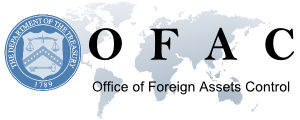OFAC SDN List Screening Clarifications
The primary thrust of OFAC’s announcement was focused on how U.S. persons conducting OFAC screenings should handle the appearance of “weak aliases” (AKAs). To anyone who has ever even glanced at the OFAC SDN List, it becomes very clear that not only is the name of the designated party placed on the list, but also a variety of spellings of that name and/or any affiliated nicknames of that party. These are what constitute weak aliases.
According to OFAC, their regulations do not explicitly require any particular screening process, however, they DO NOT expect persons to screen for weak aliases, but do expect that weak aliases be used to determine whether a match based on other information is accurate. Moreover, OFAC clearly stated:
“if (i) the only sanctions referenced in the transaction is a weak AKA, (ii) the person involved in the processing had no other reason to know that the transaction involved an SDN or was otherwise in violation of U.S. law, and (iii) the person maintains a rigorous risk-based compliance program, OFAC will not issue a civil penalty against an individual or entity for processing such a transaction.”
This guidance from OFAC is certainly appreciated and should put some parties to ease. If a strong compliance program is instituted and there is nothing other than a weak AKA associated with the transaction, U.S. persons can sleep somewhat better knowing they will not be receiving a penalty (although I am surprised OFAC openly admitted that fact). However, this is not an open door to become lax with one’s compliance program or to stop screening. U.S. persons need to remain as diligent as ever in their screening process and in their compliance with OFAC regulations, as the consequences of failing to do so far outweigh the benefit of neglecting such processes.
The author of this blog is Erich Ferrari, an attorney specializing in OFAC matters. If you have any questions please contact him at 202-280-6370 or ferrari@ferrari-legal.com.




1 Comments
Good article… Could you please cite the original OFAC text?
Comments are closed.